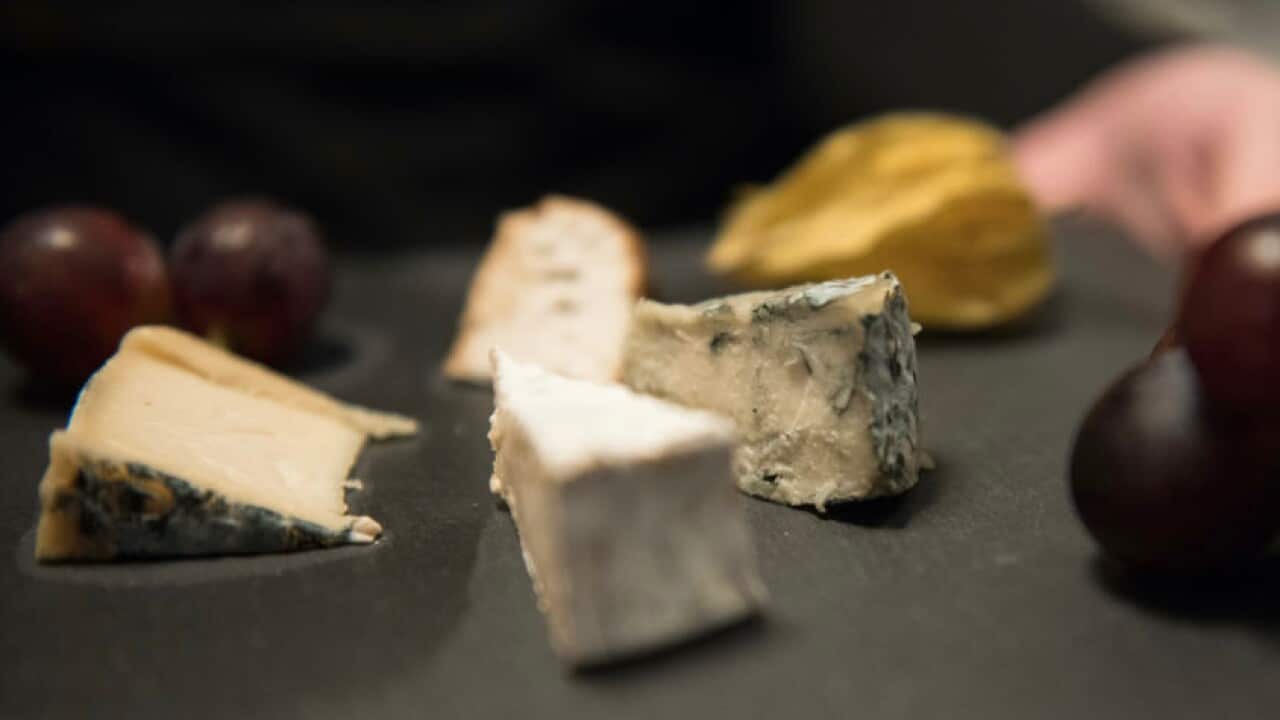No matter which side of the plant-based fence you sit on, there’s one fact that most of us can clearly see: veganism is trending in Australia.
Research conducted by found that Australia is the in the world after the United Arab Emirates and China.
Although many people become vegan for environmental reasons, there are others who chose the lifestyle to benefit their health. But does switching to a vegan diet automatically make you healthy?
This controversial question is explored in the new three-part series of airing on Mondays on SBS from Monday 4 March at 8.30pm. In series eight, Michael Mosley joins Gabriel Weston, Zoe Williams, Giles Yeo and Alain Gregoire to separate myth from fact and uncover the secrets to good health.
…It's quite possible to be vegan and just eat foods like crisps, chips and that's it and that wouldn't be good either.
In episode one, – a geneticist with nearly 20 years' experience studying obesity and the brain control of food intake – goes vegan for a month to determine whether there are health benefits to eliminating animal-based foods from your diet.
That means Giles can’t eat any eggs, animal proteins, dairy, oyster sauce, wine (containing traces of fish or eggs) or mayonnaise. “So by removing all of this food does it make my diet more healthy?” Giles asks in episode one, series eight of Trust Me I’m A Doctor.
Dietician, Dr Duane Mellor from Coventry University, joins Giles on the show to oversee his vegan eating plan and health over the next month. But, he explains that despite the hype, going vegan isn’t a guarantee of good health because it all depends on your food choices.
“…It's quite possible to be vegan and just eat foods like crisps, chips and that's it and that wouldn't be good either,” Duane says on the show.
“These foods do contain important nutrients and we need to look at how we can replace them with other foods to make sure if someone wants to choose to eat a vegan diet, like yourself, you can make sure it's as healthy and as complete as possible.”
Micronutrients of special concern for the vegan include vitamins B-12 and D, calcium, and long-chain n-3 (omega-3) fatty acids.
A paper, , reveals that eliminating all animal products from your diet increases your risk of certain nutritional deficiencies.
“Micronutrients of special concern for the vegan include vitamins B-12 and D, calcium, and long-chain n-3 (omega-3) fatty acids,” the paper reads.
“Unless vegans regularly consume foods that are fortified with these nutrients, appropriate supplements should be consumed. In some cases, iron and zinc status of vegans may also be of concern because of the limited bioavailability of these minerals.”

Dwayne Mellor talks to Giles Yeo about the health impact of going vegan. Source: Still from Trust Me I'm A Doctor, E1S8
The vegan experiment
The short-term experiment conducted by Giles was medically monitored and his diet, crafted by Duane to ensure no nutritional value was lost during his switch to veganism.
Giles also received a run-down of foods to eat to replace key nutrients typically found in a non-vegan diet. He’s told he can have tofu, soy and beans for protein; bok choi, broccoli and chard for calcium; yeast extract for Vitamin B12; Brazil nuts for selenium and seaweed for iodine.
“But by the end of the month, vegetables are starting to lose their appeal,” Giles says.
He’s told he can have tofu, soy and beans for protein; bok choi, broccoli and chard for calcium; yeast extract for Vitamin B12; Brazil nuts for selenium and seaweed for iodine.
The results show that Giles dropped one belt size – he lost over four kilos in just four weeks – and his body fat also reduced by under three percent. “In tandem with my weight and fat dropping, my cholesterol fell by 12 percent.”
The experiment does not reveal why Giles’ cholesterol level improved. However, it’s hypothesised that weight loss may have led to a reduction in cholesterol. The drop could also be explained by the effects of a fibre-laden, plant-based diet.
Thanks to the dietetic advice guiding Giles’ food choices, his vitamin and iron levels did not decrease.
“If we look at populations round the world, there's no clear evidence that it helps people live longer or particularly healthier [lives]. By going vegan you're making a deliberate dietary choice: you have to really think about every meal,” says Duane.
“So you make better choices in terms of the amount of vegetables you eat, you have a higher fibre intake, and all those things can add together.”
If we look at populations round the world, there's no clear evidence that it helps people live longer or particularly healthier [lives]...
A shows that vegetarians and non-vegetarians have similar mortality rates. Vegetarians also have generally good health over the long-term compared to omnivores. It suggests that while more research into the long-term health benefits of veganism is needed, the reduction of animal-based proteins in your diet can be beneficial.
Duane advises that everyone who moves from a non-vegan to vegan diet to consult their doctor or a dietitian to determine how to increase their nutritional intake through foods and supplements.
The new three-part series of will air on on Mondays on SBS from Monday 4 March at 8.30pm.









